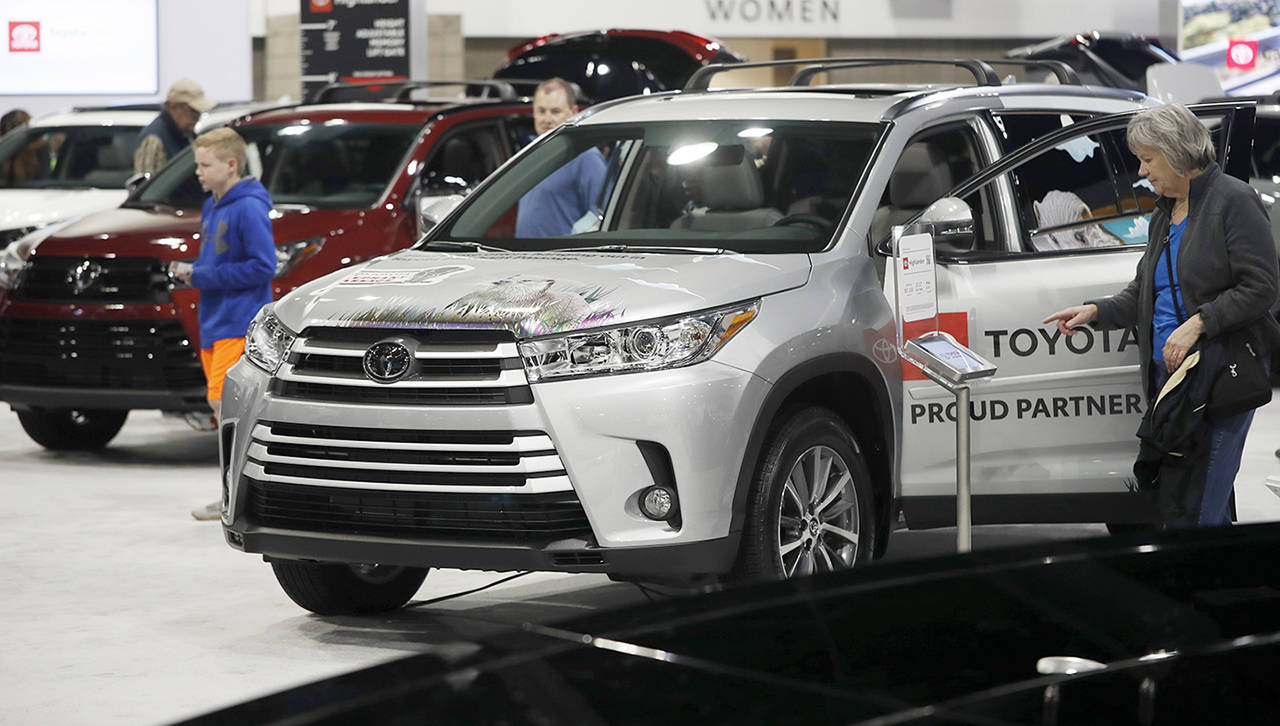By Dino Grandoni / The Washington Post
WASHINGTON — An environmental adviser to the Trump administration projects that its attempt to reverse Obama-era fuel-efficiency standards could have a steep long-term toll on the U.S. economy and eventually cost the country hundreds of thousands of jobs.
The research by an outside adviser picked by former Environmental Protection Agency chief Scott Pruitt — and funded by grants from the auto industry — is sure to fuel critics of the Trump administration’s attempts to stall rules meant to reduce the amount of climate-warming and illness-causing pollution produced by the nation’s automobiles.
While cutting the car regulations would give the U.S. economy a short-term jolt, it would forestall job-creating automotive innovation in the long run while putting less money in the wallets of motorists who would have to spend more on gasoline, according to the adviser John Graham, who is dean of Indiana University’s School of Public and Environmental Affairs, and his four colleagues.
The Trump administration’s proposal to freeze standards on tailpipe emissions for new cars and light trucks at 2020 levels, or otherwise watering down their stringency, would create 236,000 fewer jobs by 2035 than if the Obama-era standards stayed intact, according to the paper published late last month in the peer-reviewed Journal of Policy Analysis and Management.
“The final result of our paper is that the possible Trump administration changes to the standard will reduce the short-term loss but it will also significantly reduce the long-term benefit,” said co-author Sanya Carley, associate professor at Indiana University.
Still, Graham, a former head of regulatory affairs in President George W. Bush’s Office of Management and Budget, stopped short of offering an overall opinion on the Trump administration’s proposal.
“We have not analyzed the full range of impacts that are relevant to offering an informed opinion,” he said.
The Obama-era rules, which compel automakers to build cars that get increasingly more miles per gallon of gasoline, constituted a cornerstone of that administration’s efforts to reduce the nation’s overall greenhouse-gas emissions.
But the Trump administration, in trying to roll back those rules, argues that forcing carmakers to manufacture more expensive fuel-efficient vehicles jeopardizes the safety of drivers.
They contend that some consumers will forgo buying the pricier vehicles and keep driving older cars that perform less well in accidents.
The result, according to a statement from President Donald Trump’s EPA, would be the prevention of “thousands of on-road fatalities and injuries as compared to the standards set forth in the 2012 final rule.”
But top Trump administration officials at the EPA, National Highway Traffic Safety Administration and White House are still wrangling over how exactly to undo the Obama-era rules.
After initially suggesting freezing the standards at 2020 levels, administration officials are now exploring the idea of gradually ratcheting up fuel efficiency standards between 0.5 percent and 1 percent a year to address the automakers’ call for annual increases.
For months, the Trump administration has been at loggerheads with California and other blue states over their efforts to freeze standards on the tailpipe emissions. After months of negotiation, the administration broke off talks with California in February.
The end of those talks paves the way for California to set its own standards, which under a half-century-old law it has the authority to do.
But having two sets of tailpipe rules nationwide for new cars is a worst-case scenario for the automotive industry, which fears a higher cost of complying with that patchwork of regulations. Early in Trump’s administration, automakers called for revisiting the rule, but have now expressed concern about how a rollback could fracture the U.S. auto market.
Starting in 2015, the Alliance of Automobile Manufacturers, a group of leading automakers, paid the Indiana University researchers nearly $800,000 to prepare a study of fuel-economy standards put forward under Obama.
Graham’s team published a study in March 2017. That spring, they briefed government analysts in Washington and Ann Arbor, Michigan, on its findings, Graham said.
But after the Trump administration came up with its own proposal to weaken fuel-efficiency standards, the team followed up with its most recent analysis of the potential economic effects of that proposal. The team’s research does not quantify any health benefits stemming from reducing auto pollution.
Auto Alliance spokesperson Gloria Bergquist said “the release of the study last week was a surprise.”
The researchers also emphasized that the Auto Alliance did not have any influence on the outcome of the studies. “We were so careful to make sure that this funder didn’t have any input on what our decisions were,” Carley said.
The involvement of Graham in the study is significant because the former Bush administration official was tapped in 2017 by Pruitt to join a key research advisory panel.
While in office, Pruitt named a cadre of industry-connected scientists to the Scientific Advisory Board and other panels, which help guide the EPA’s research objectives and make recommendations that form the basis for new regulations.
Critics of the Trump administration note that freezing the pollution standards would be a boon for oil and gas producers allied with the president.
Indeed, Graham’s study found that while the U.S. economy as a whole stands to benefit from the fuel-efficiency standards, a handful of southern oil-producing states — including Louisiana, Oklahoma and Texas — would likely lose economically because of it.
“The effects are not even across regions,” Carley said. “Some regions take a bigger hit.”
Talk to us
> Give us your news tips.
> Send us a letter to the editor.
> More Herald contact information.

























